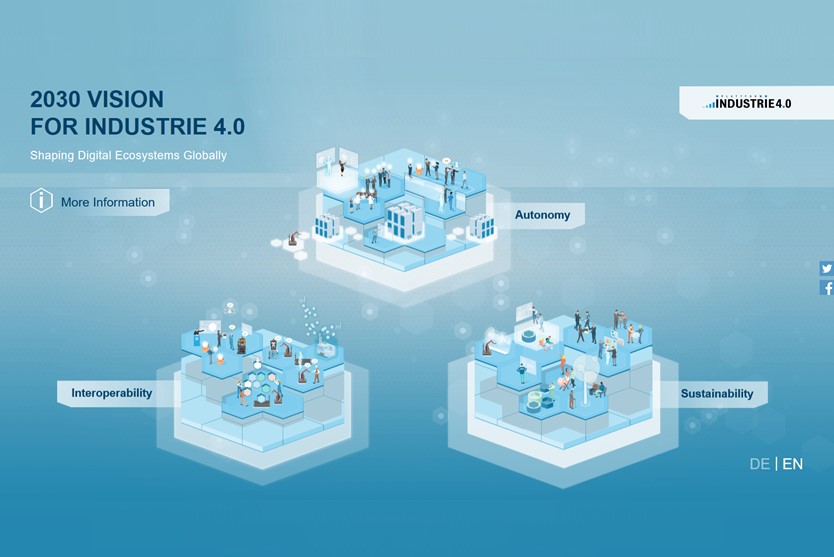
Dr. Jürgen Schlinkert, Head of the Working Group „Legal Framework“
© DIHK
Challenge and mission: The law must keep up
Industrie 4.0 applications are increasingly changing business processes and models. These changes mean new uncertainty for many companies: how do I apply the current law to my digitalised production tomorrow?
Ambiguities in defining contract terms, in antitrust behaviour, in the use of data and liabilities often prevent companies from taking the step into Industrie 4.0.
The working group "Legal Framework" shows where German and European law stands and how it could evolve. Examples from practice and from informational events contribute to establishing legal certainty - especially for SMEs.
Outcome 1: Overview of where Industrie 4.0 impacts the law
Whether in new forms of cooperation, data processing or task fulfillment by machines: the changes that Industrie 4.0 brings with it also have an impact on the legal framework in our working and business world. For this reason, this working group, in its results paper “Industrie 4.0 – How well the law is keeping pace”, systematically illuminated the fields in which the law faces challenges today and tomorrow. From civil law to data protection right through to labor law, it becomes clear what existing law covers thus far and how and where there is a need for action for businesses and policy-makers.
Outcome 2: Are we still allowed to cooperate? The antitrust framework for data-based cooperation
Digital markets are changing the way companies collaborate – with new ways to use and share data, partners can quickly beome competitors. This raises new questions:
- Who is allowed to cooperate with whom and under what conditions?
- What significance does access to data have for market power and when is there a misuse?
- Who is responsible for the antitrust-related behavior of self-learning systems?
This working group explores these questions in its publication on antitrust considerations. A short summary gives a quick overview of the most important results.
Objectives: Create legal certainty and legally evaluate new trends
The overall objective of this working group is to accompany the implementation of Industrie 4.0 on legal matters and to give companies legal certainty on the way to digitalisation. In this regard, the lawyers from the working group want to tackle the following measures:
- Analyse the importance of blockchain technology and artificial intelligence for current law
- Conduct a convening on legal frameworks together with experts from other organisations
- Develop and implement formats to support SMEs – e.g. workshops
Work structures: bundled legal knowledge of the Plattform
Digitalised industry does not hold still – this is why the 50 experts of the working group are always keeping an eye on new developments. Within six thematic sub-working groups, they regularly exchange ideas and give their recommendations. In addition, they meet four times a year to bring their work together and work towards their shared vision.
The focus areas are:
-
Civil law / civil procedure law
-
IT security law / data protection law
-
Product liability law / product safety law
-
IP law
-
Employment law
- Antitrust law




